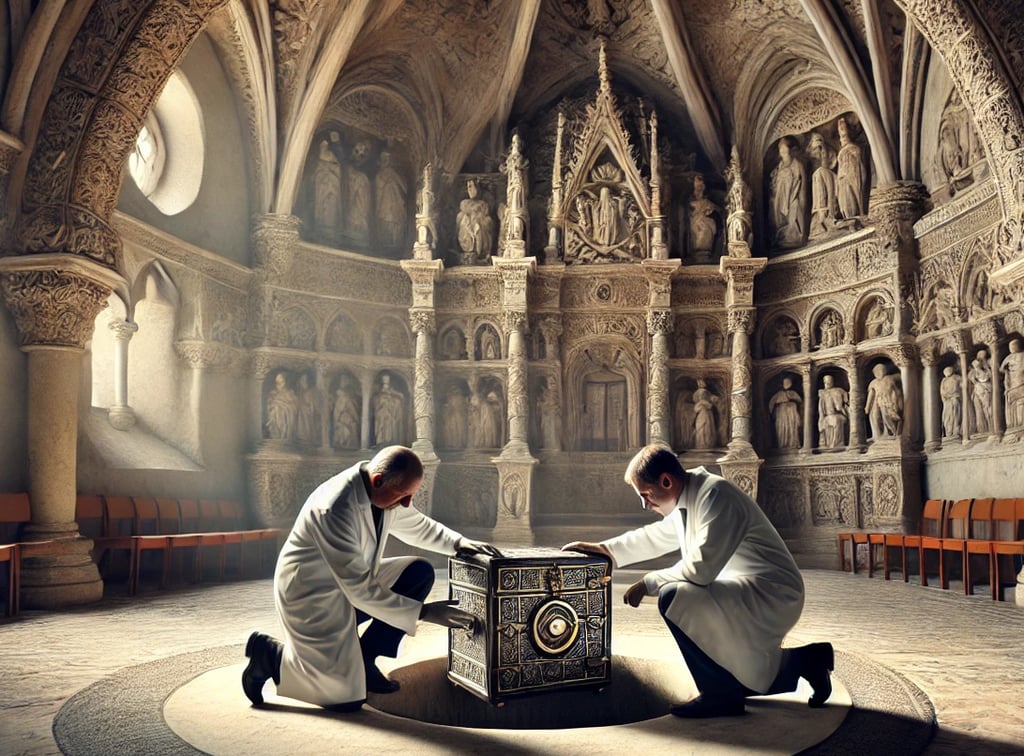The Assassination of João VI
I knew I was poisoned; I just didn’t know by whom. As I, King João VI, endured abdominal pain, vomiting, and diarrhea, my suspicion grew. I died ten days later, on March 10, 1826.
TALES
Written by Nelson Viegas
9/9/20242 min read


I knew I was poisoned; I just didn’t know by whom. As I, King João VI, endured abdominal pain, vomiting, and diarrhea, my suspicion grew. I died ten days later, on March 10, 1826. It took 174 years to confirm it: my remains, examined by investigators, revealed high levels of arsenic—enough to kill me. And so, it was proven that I was the victim of the first regicide in Portugal. But the question remains: who murdered me?
Looking back, anyone could have had a motive. Let’s start with Napoleon Bonaparte. Although he had been dead for five years by the time I passed, he had many reasons to want me gone. I outsmarted him when I relocated the Portuguese court to Brazil in 1807. Some saw it as cowardice, but I saw it as strategic. By abandoning Portugal temporarily, I avoided surrendering to Napoleon’s advancing army, preserved our alliance with England, and kept Portugal out of his grasp. Though my decision was controversial, it allowed us to eventually reclaim our land in 1811.
Napoleon's disdain for me was palpable, and I wouldn’t be surprised if he had posthumously sought revenge. After all, I thwarted his plans to divide Portugal between France and Spain, and I supported the British in defeating his forces in Portugal.
Then there’s my wife, Carlota Joaquina. We married young, in a political arrangement, and our relationship became strained over the years. She was ambitious and absolutist, seeking power even if it meant undermining my rule. She conspired to take the throne when I was ill, plotted her own reign in South America, and constantly sought to challenge my authority. Despite our distance, I loved her. Yet, politically, my death would have served her goals, placing our son Miguel on the throne, favoring an absolutist monarchy over the liberal direction I was heading in.
Miguel, too, had his reasons. Like his mother, he was an absolutist, and with my death, he would have a clear path to power. Though Pedro, my eldest, was the rightful heir, his declaration of Brazilian independence made him ineligible to rule Portugal. This left Miguel in line for the throne, and my death would accelerate his claim.
But who really killed me? Was it Napoleon, Carlota, or Miguel? As it turns out, none of them were responsible. I poisoned myself. You see, I had a passion for food, especially dishes from Brazil. When I returned to Portugal, I brought seeds and plants from Brazil, including cassava, a staple in my diet. Unfortunately, the variety grown here was different from the one in Brazil—it was bitter and toxic. Cassava contains cyanide, and the Portuguese didn’t know how to process it properly. Over time, my daily consumption of cassava slowly poisoned me.
Adding to the tragedy, arsenic was widely used as a remedy at the time, and I was given large doses to treat my ailments, unknowingly compounding the effects of the cyanide. The more I ate cassava, the more arsenic I took, and the cycle of poisoning continued until my body gave out.
In the end, the mystery of my death wasn’t a case of assassination. It was my own indulgence in cassava and the misguided medical treatments of the time that sealed my fate. No one else is to blame—I am the architect of my own demise
Book now!
Contacts
+351 936 651 524
info@storyandtales.com




